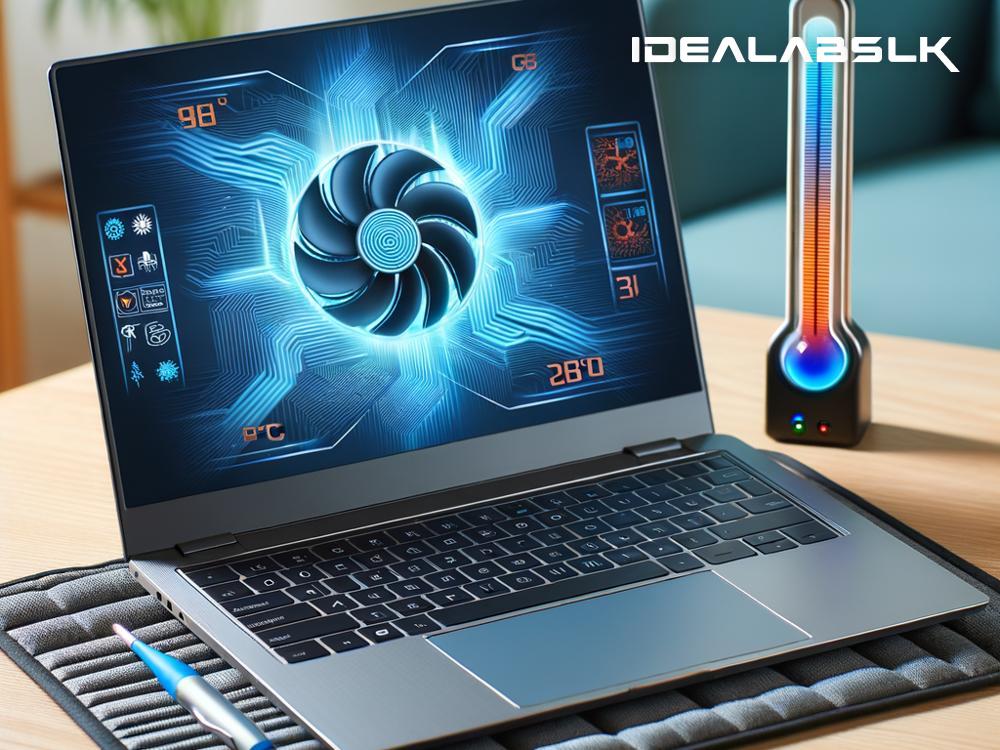Troubleshooting 'Computer Overheating While Charging': A Simple Guide
Have you ever noticed your computer getting unusually hot while it's charging? If so, don't worry – you're not alone. While it's normal for laptops and computers to warm up a bit during use or charging, excessive heat could spell trouble. Overheating not only makes it uncomfortable to use your device but can also significantly shorten its lifespan. Fortunately, there are several steps you can take to troubleshoot and fix the issue. Let’s dive into some simple strategies to keep your computer cool and functioning properly.
1. Check Your Charging Habits
First things first: consider your charging habits. Are you charging your laptop all day, every day? Overcharging can cause your battery to generate excess heat. To avoid this, try to keep your battery level between 20% and 80%. Not only does this help with overheating, but it can also prolong your battery's life.
2. Keep Vents Clear and Clean
Your computer's cooling system relies on vents to dissipate heat. If these vents are blocked by dust or debris, or if you're using your computer on a soft surface like a bed or a couch, it can't cool down efficiently. Make sure to regularly clean your laptop's vents with a can of compressed air and always use your computer on a hard, flat surface. You may be surprised at how much this simple step can help reduce overheating.
3. Update Your Software
Sometimes, the culprit behind overheating is outdated software. Operating systems and drivers that are not up to date can cause your computer to work harder than it needs to, generating excessive heat in the process. Regularly check for software updates and install them to ensure your system runs smoothly and coolly.
4. Adjust Your Power Settings
High-performance power settings can cause your computer to overheat because they push your hardware to its limits. By switching to a more energy-efficient setting, you can reduce heat generation. Go to your computer's power settings and choose the 'Balanced' or 'Power saver' plan. This adjustment can significantly impact your device's temperature without greatly affecting its performance.
5. Consider a Cooling Pad
If you're still facing overheating issues after trying the above suggestions, it might be time to invest in an external cooling solution. Cooling pads are relatively inexpensive accessories that can dramatically improve airflow around your laptop. These devices often come with additional fans that help keep your computer cool, especially during heavy use or while charging.
6. Check for Hardware Issues
In some cases, overheating can be a sign of a hardware problem. If your laptop's fan is noisy or doesn't seem to be working at all, it might need to be repaired or replaced. Additionally, if your computer is older, it might be time to replace its thermal paste – the substance that helps transfer heat from your CPU to the cooler. However, if you're not comfortable opening up your device, it's best to leave these repairs to a professional.
7. Take Breaks
Last but not least, give your computer a break every now and then. Continuously charging and using your laptop for extended periods can significantly contribute to overheating. Make it a habit to shut down or put your computer to sleep during longer breaks. This simple practice can give your device a much-needed rest and help maintain a healthy temperature.
Conclusion
Overheating can be a frustrating issue, but in many cases, it's one that you can resolve with some basic troubleshooting steps. By paying attention to how and where you use and charge your laptop, keeping it clean and updated, and possibly using external cooling aids, you can help ensure your computer stays cool under pressure. Remember, if you're ever in doubt about the cause of your overheating issues or how to address them, consulting a professional is always the safest bet. Happy computing!

